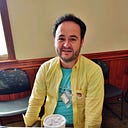Member-only story
Living in the shadow of a teenage idol: David Nelson enters the limelight

If you are not a Medium member, join today or read the complete article here for free.
David Nelson was the epitome of a show biz kid. The eldest son of Ozzie and Harriet Nelson, the family rose to widespread recognition on the long-running sitcom/quasi-reality ABC series, The Adventures of Ozzie and Harriet.
Of course, David’s little brother, Rick, became an overnight rock and roll sensation at the tender age of 17 when he decided to impress a girlfriend who thought Elvis Presley was the greatest singer this side of South Georgia sweet tea. The future Rock and Roll Hall of Famer nonchalantly covered Fats Domino’s “I’m Walkin’”, and the rest is history.
According to an interview for Philip Bashe’s Teenage Idol, Travelin’ Man biography, the one question posed to David throughout his life was whether he experienced any jealousy over his brother’s success. While he denied the accusation, the actor did recount one revealing anecdote that might have brought on a certain degree of resentment.
While the Nelsons were singing “Happy Birthday to You” on David’s 21st birthday in 1957, Imperial Records mogul Lew Chudd burst in unannounced to bestow Rick with a gold record for “Be-Bop Baby.” David sardonically told the author, “At least Chudd could have waited until I blew out the candles.”
Like his brother, David was highly athletic, friendly, and even-tempered. One crucial aspect of their distinctive personalities — David preferred his mom’s company while Rick emulated Ozzie. As their father was a genuine creative genius who had a notorious control streak, in addition to his brother’s massive fame, David had a tougher time finding his own identity.
Although he certainly tried — appearing in motion pictures such as Lana Turner’s Peyton Place [1957], The Big Circus and Day of the Outlaw [both 1959]. The Big Circus influenced the handsome actor to the extent that he actually moonlighted with a traveling circus as a death defying acrobat, while the latter was a vastly underrated, noirish western set in the dead of Oregon winter featuring the excellent Robert Ryan, Burl Ives, and future Gilligan’s Island siren Tina Louise, nearly unrecognizable without her trademark makeup.
